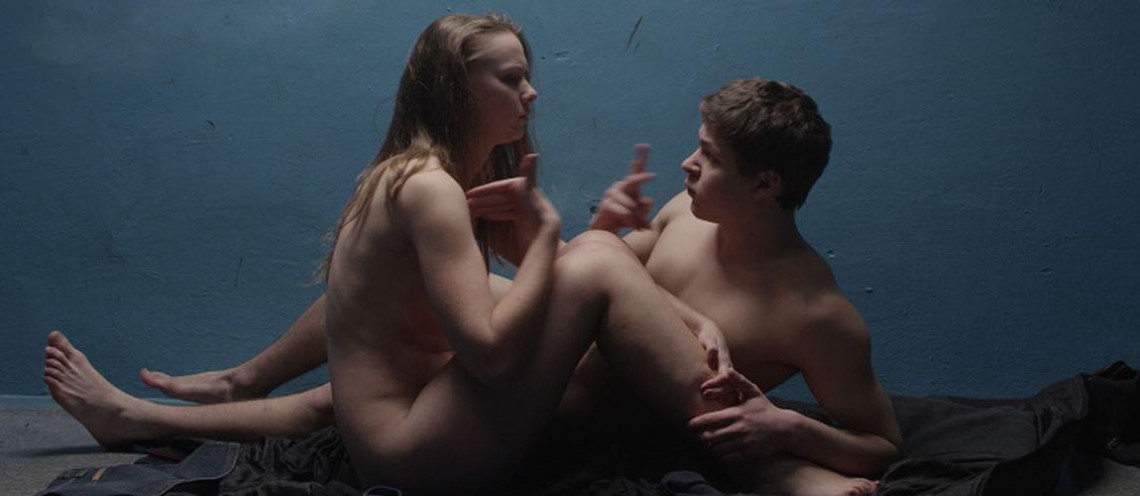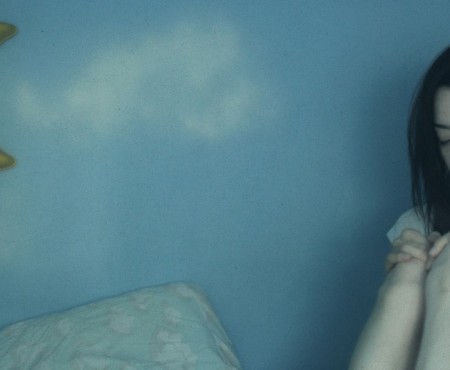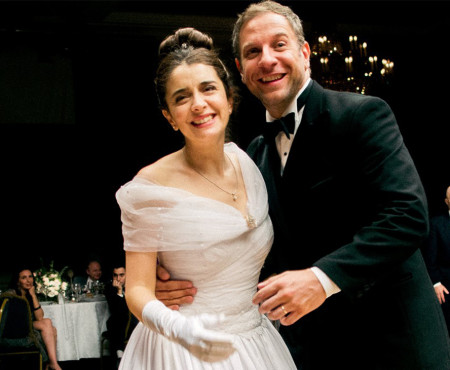At the post-screening Q&A for The Tribe, one Concerned Citizen asked director Miroslav Slaboshpitsky whether deaf people might take the film as an unflattering depiction of their culture. Which immediately calls to mind the similar complaint that a Sundance audience member had about Better Luck Tomorrow in regards to its “representation” of Asian Americans. But I think teenagers as a demographic or Ukrainians as a people have more reason for dismay at how they’re portrayed in the film than the deaf do. Even though the characters in this film are mainly brutal criminals, it feels less offensive than the cultural default to use the deaf as a vector for cheap “inspirational” stories.
In fairness to that one viewer, though, The Tribe does work towards divorcing itself from 99.99999% of the people that will see it. In a much-ballyhooed move, the film’s dialog is performed entirely in sign language, with no voiceover or subtitles translating what the all-deaf cast is saying. But the crafted disconnect goes deeper than that, so that even speakers of Ukrainian Sign Language might not identify with the characters. The movie consists of nothing but long takes, always from a master shot. It’s literally keeping its distance from these people.
The result is almost like a nature documentary at times. There’s one shot of a group of kids lounging around a gutted structure that feels strongly reminiscent of the birds roosting on the playground in The Birds. When a nighttime sequence tracks with a group of boys as they stalk and then assault a man, it’s like a wolf hunt. These kids don’t seem to just move — they flock, converging en masse on one focal point before scattering to their own devices. It’s there even in the title: a “tribe,” a word that evokes the idea of something primal, less-than-civilized.
Into this world comes Sergey (Grigoriy Fesenko), a new student at a boarding school for the deaf that looks more an apocalyptic wreck of graffiti and grime (another post-Communist casualty, in other words). There are exactly three scenes in this movie that have to do with normal school activities. Everything else consists of older students shaking down younger ones for money, petty theft on trains, the assault and battery of passersby, random drinking and wilding in the night … oh, and prostitution. It makes the high school from Brick look like the Disney Channel.
Not long after being initiated into the main gang of bad boys, Sergey is put in charge of pimping their two girls out at truck stops. For their part, the girls are quite enthusiastic about the whole endeavor. But as any criminal protagonist must, Sergey screws things up for himself when he lets his heart get the better of him. He falls for Anna (Yana Novikova), one of the escorts, and this leads him to disrupt the gang’s activities, and he must reap the nasty retribution that’s to follow.
The Tribe is not a silent film. There’s plenty of dialog — most people simply won’t be able to understand it. It doesn’t try to put the audience inside the mindset of a deaf person, either, which is another of its methods of disconnect. There’s no music, but sound (which is impeccably deployed here) is always present. In many respects, it’s actually a quite conventional Euro-crime story. The lack of spoken word doesn’t even lead to creative visual storytelling; much of the plot, as well as the mindsets of the characters, can be gleaned from the simple actions they take, as well as their contexts. Which, perhaps, is part of the point: This is a way to draw attention to how much of human communication is unspoken, expressed through people whose communication is by necessity wholly silent.
It’s not clear if there’s a real thematic “point” to the unsubtitled sign language, but there doesn’t have to be, really. Why can’t deaf people simply have this kind of film of their own? The film gets greater mileage out of its single-take format; in one scene, Anna and her BFF go from schoolgirls to nightwalkers in the course of one van ride, a mesmerizing metamorphosis.
So what would a deaf person get out of The Tribe, then? An unusually explicit crime film, for one thing. Though actual acts of brutality are only sporadic, there’s violence in the background radiation of the film, living in the characters’ rough posturing and the buildings decaying into rust. There are several graphic sex scenes, as well. The movie hits a grim high (low?) in an unsparing, deeply upsetting abortion sequence.
As Anna, Yana Novikova is called upon to bare a lot in this film. The story struggles to distinguish her as more than a sexual pawn of the boys. She enjoys her sexual adventures, but they ultimately bring her nothing but misery. She gets scenes of her own, separate from Sergey, but the movie is more concerned with what she means to him. Still, there’s more depth to her than there is to Sergey, though Fesenko delivers an appreciable if familiar performance as the stoically muscular outsider.
The Tribe is a singular experience, even if it’s in service to shallow themes and characters who feel more archetypical than real. It’s moodiness and viciousness, though, is indelible.




















3 thoughts on “AFI Fest Review: “The Tribe””
Pingback: The Weeks that Were: 11/3 - 11/16
Pingback: The 2014 Cinematic Retrospectivus
Pingback: The Tribe (2015) Online Free #PutLocker | PutLocker.Pro